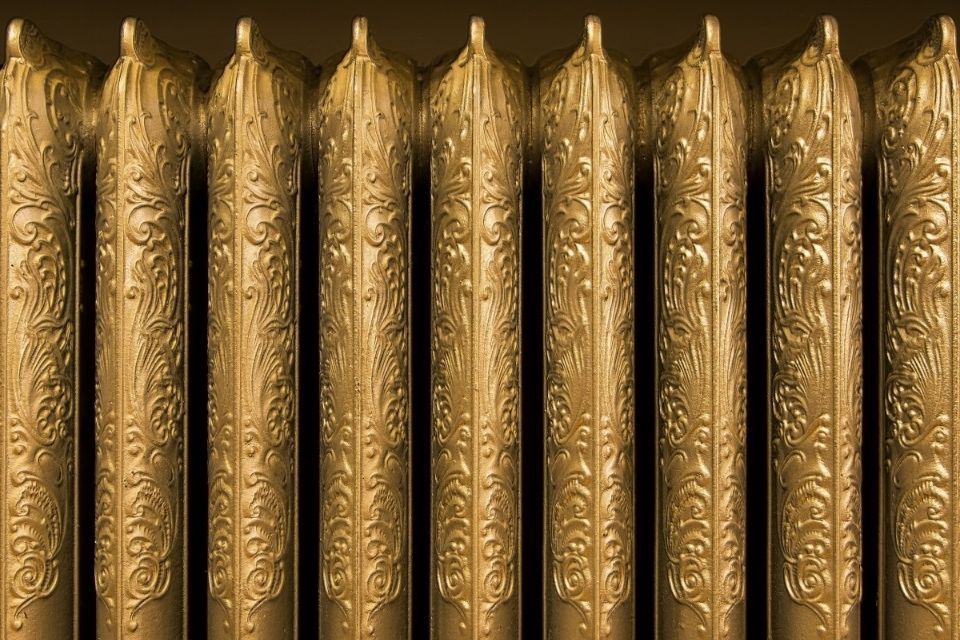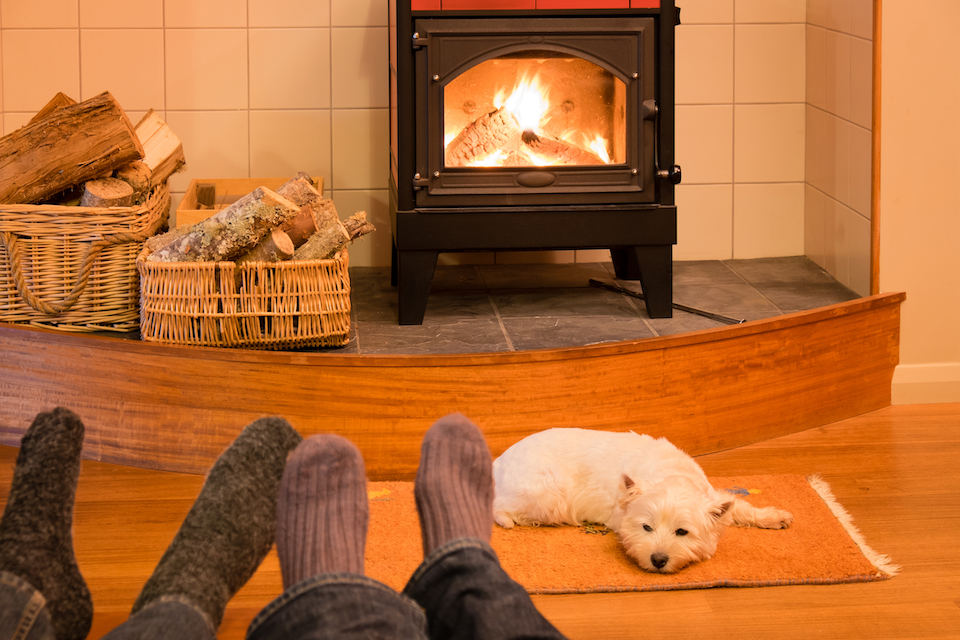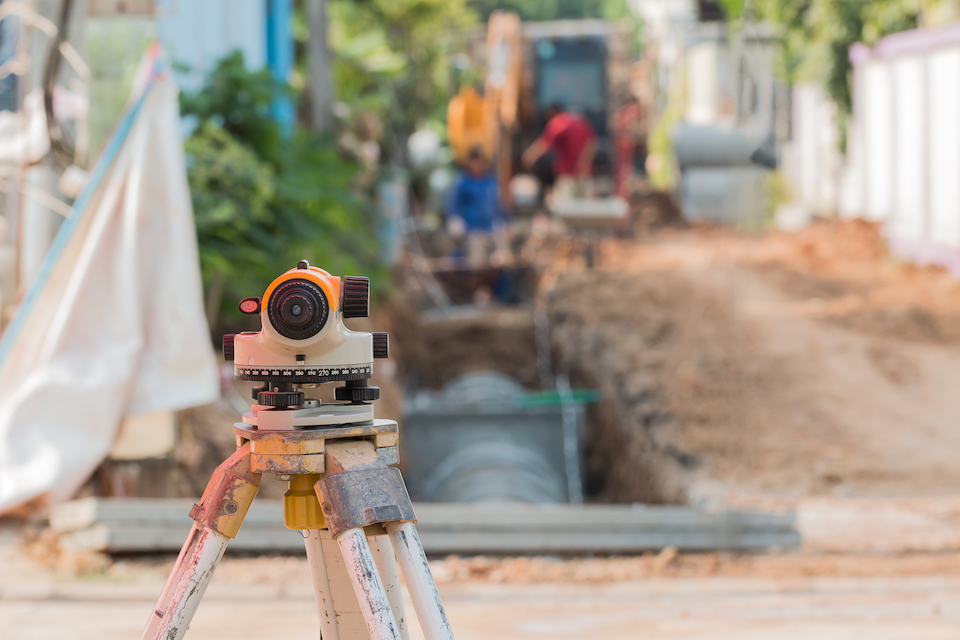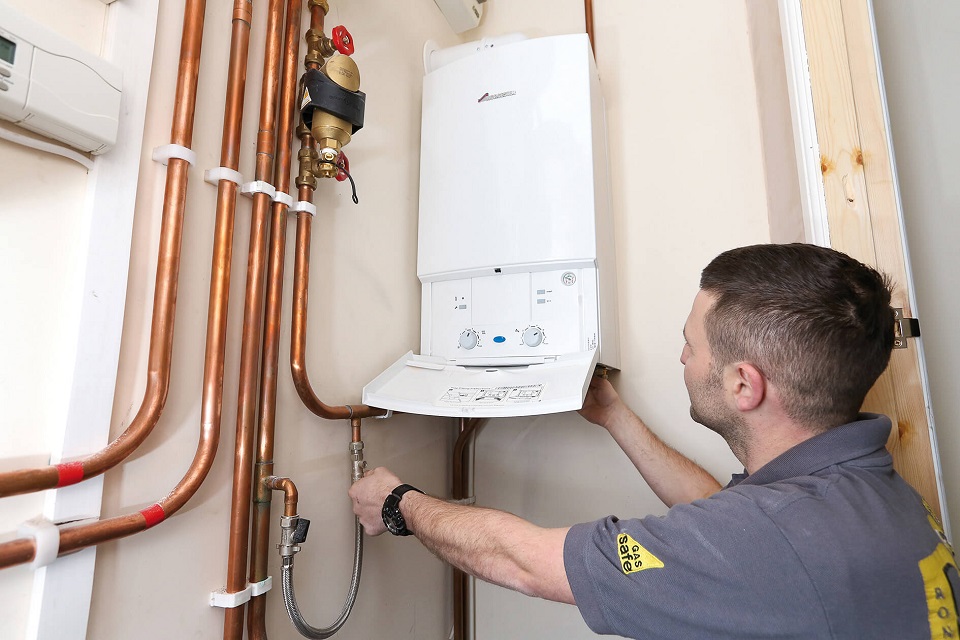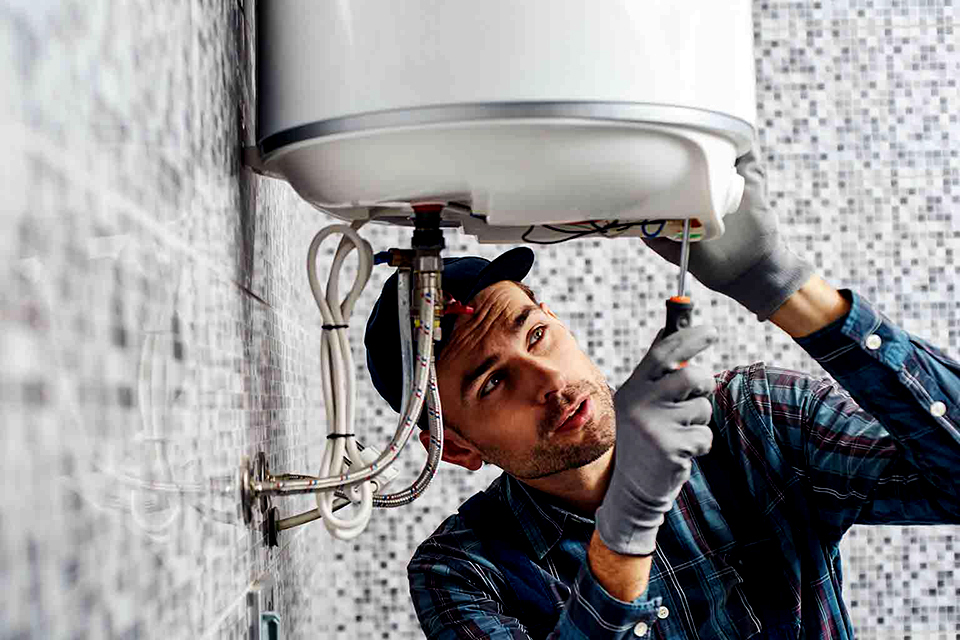How Much to Fit a New Radiator in 2025?
Thinking about having a new radiator installed?
This guide covers everything you need to know - including the different types you can get, new radiator prices, the cost to install a radiator in your home, and any additional costs you should expect to pay.
If you're ready to get a quote for your new radiators, we can also help connect you with local plumbers.
Ready? Let's get to it.
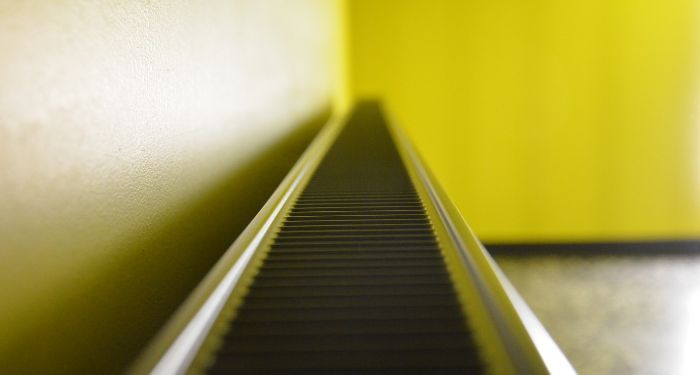
It should cost you anywhere between £95 and £850 to buy a new radiator and have it installed by a professional.
An experienced plumber or heating engineer will find replacing a radiator to be a fairly straightforward and easy task.
More specifically, it should cost between £95 and £300 to install a single panel radiator, £115 to £550 for a double panel radiator installation, £375 to £725 for a horizontal radiator, £375 to £750 for a vertical radiator, £260 to £850 for a column radiator, and approximately £111 to £750 for a heated towel radiator.
These costs exclude the cost of removing a radiator beforehand. We’ll cover removals later in this guide.
Radiator Fitting Prices in 2025
| Type | Total Cost (Installation + Supply) |
|---|---|
| Single Panel | £95 to £300 |
| Double Panel | £115 to £550 |
| Horizontal | £375 to £725 |
| Vertical | £375 to £750 |
| Column | 260 to £850 |
| Heated Towel | £111 to £750 |
- How Much to Fit a New Radiator in 2025?
- Radiator Costs in the UK (Supply Only)
- Additional Radiator Installation Costs
- Labour Cost to Fit a Radiator
- How Long Does It Take to Install a New Radiator?
- Choosing a Radiator
- Type of Radiator Fuel
- What’s the Best Radiator for Your Room?
- Radiator Maintenance Cost
- Radiator Repair Costs
- How Much Does It Cost to Move a Radiator?
- How Much Does It Cost to Remove a Radiator?
- FAQs
Radiator Costs in the UK (Supply Only)
So, how much does a new radiator cost to buy?
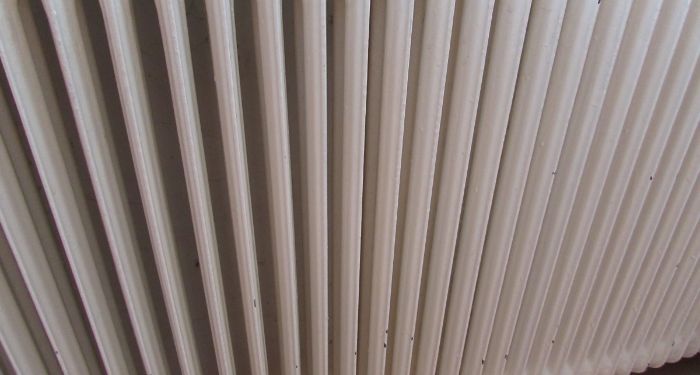
If you purchased a new radiator directly from a retailer, this is how much you'd pay excluding radiator installation costs:
- Single Panel Radiator Cost: £20 to £150
- Double Panel Radiator Cost: £40 to £400
- Horizontal Radiator Cost: £300 to £575
- Vertical Radiator Cost: £300 to £600
- Column Radiator Cost: £185 to £700
- Heated Towel Radiator: £36 to £600
It's possible that heated towel radiator prices may exceed this price range, but we've found plenty of great options that are within this estimate.
Additional Radiator Installation Costs
When you have a new radiator fitted, you may want or need to have some additional work done.
Here are just a few things you might want to budget for.
The cost of a new boiler installation will be between £500 and £3,000, a medium-sized room would cost around £500 to £700 to have plastered, while you'd need to budget about £16 per hour for any decorating around the house that you hire someone to do.
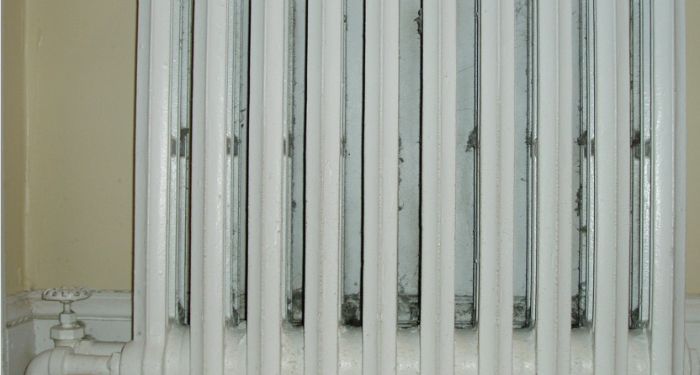
To have a water tank fitted will cost about £150 to £600 while a new thermostat cost will set you back around £150 to £280.
Something a little smaller is the installation of a TRT radiator valve. This would cost between £5 and £39 to have done.
Upgrading to underfloor heating may also be an option. This does however come at a more costly price. On avearge to fit an electric/dry system where renovation work is needed, it would cost between £2,900 and £3,100 for a 40m2 area.
Labour Cost to Fit a Radiator
Excluding the labour cost of removing an existing radiator, how much does it cost to have a radiator fitted in your home?
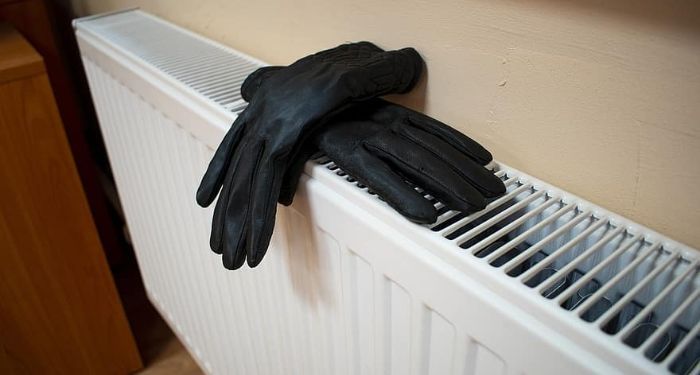
A heating engineer will likely charge you between £30 and £70 per hour to install a new radiator, with a day rate of approximately £190 to £370. However, this will be significantly impacted by where you're located in the UK.
This means that an average-sized radiator should cost between £75 to £150 to have installed by a professional.
And here's the thing.
We wouldn't expect the cost to install a new radiator (regardless of which type you choose) to vary outside this range. The only exception is horizontal radiators, which don't usually take as long to install.
That said...
The labour cost of replacing radiators will cost you a bit extra.
How Long Does It Take to Install a New Radiator?
The bottom line is this:
It usually takes between 1 to 2 hours to install a new radiator in your home, regardless of whether it's small, medium, or large.
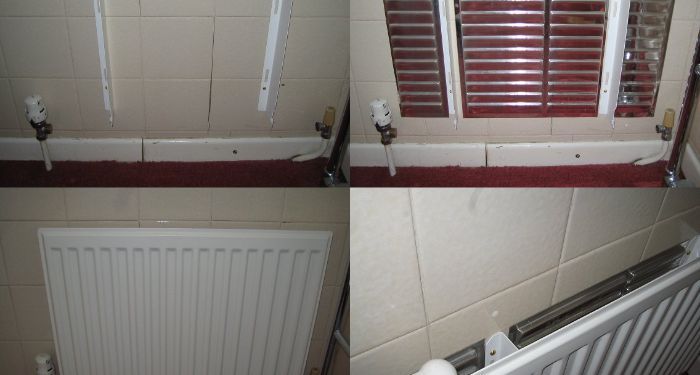
There's one exception to this:
While it can take up to a couple of hours to get a new horizontal radiator installed, it tends to be quicker to install than other radiator types that are available.
| Type | Installation Time |
|---|---|
| Single Panel Radiator | 1-2 Hours |
| Double Panel Radiator | 1-2 Hours |
| Horizontal Radiator | 1-2 Hours |
| Vertical Radiator | 1-2 Hours |
| Column Radiator | 1-2 Hours |
| Heated Towel Radiator | 1-2 Hours |
| Small Radiator | 1 Hour |
| Medium Radiator | 1-2 Hours |
| Large Radiator | 2 Hours |
However, there are two factors that can significantly impact how long it takes to have a new radiator installed.
This includes:
- Whether you need to remove an old radiator.
- The state of the area where you're looking to install a new radiator.
Choosing a Radiator
In this section, we outline all the different types of radiators that you could choose between.
We tackle the characteristics of each radiator type, their pros and cons, and average radiator prices.
As we've already covered, the cost to install a radiator is not usually dependent on the type you choose. Instead, the average new radiator cost is dependent on the size of the radiator.
Choosing the size of the radiator is important to ensure you get the right amount of heat output needed to warm your room sufficiently. BTU (British Thermal Unit) is a measurement that is used to calculate this. It calculates the amount of energy needed to raise the room temperature, taking into consideration the room size, current insulation and any heat loss factors. Choosing the right BTU for your radiator will ensure your upgrade is energy efficient and fit for purpose.
What should it cost to install a radiator (on average)?
Radiator installation costs usually range between about £75 and £150. Horizontal radiators are usually the exception, as they are a little quicker to install.
However:
This might not be reflected in the labour cost you're quoted - as professionals often charge a flat rate for the first few hours of work they do.
Single Panel Radiator Cost
Single panel radiators are the most common type which are installed.
It's fitted onto a wall and faces outwards - heating up the room it's in.
A single panel radiator tends to cost around £20 to £150.
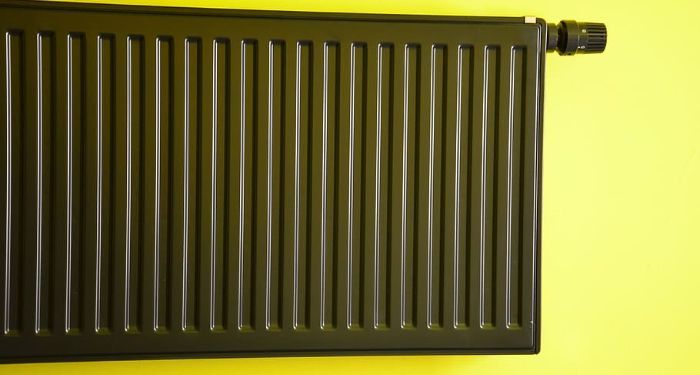
Pros:
- Cheapest type of radiator
- Popular and commonplace
- Well suited to smaller spaces and rooms
Cons:
- Doesn't emit as much heat as double panel radiators
Double Panel Radiator Cost
This type of radiator combines two panels, which are lined up against one another to increase the heat output. These are more appropriate for larger rooms than single panel radiators.
It will likely cost you about £40 to £400 to purchase a double panel radiator.
Pros:
- Provides more heat than a single panel radiator
- Inexpensive type of radiator
Cons:
- More expensive than a single panel radiator
Horizontal Radiator Cost
As the name suggests, horizontal radiators have a long width and a narrow height. They are usually installed in the coldest spot of a room. These tend to be relatively small-sized radiators.
Horizontal radiators cost between about £300 and £575.
Pros:
- Doesn't take up too much space
- Suitable to fill dead space in the room (like below windows)
- Quick and easy to install
- May be cheaper to install compared to other radiator types
Cons:
- Costs more than alternatives
- Not suited to a room with little wall space
Vertical Radiator Cost
With a tall height and narrow width, vertical radiators extend upwards along the wall - and are perceived by many to be a modern style choice. Vertical radiators don't need a boiler to function properly.
Verticial radiators cost between about £300 and £600.
Pros:
- Ideal for rooms with limited wall space
- May work well as a room centrepiece
- Can save space if the room is relatively small
Cons:
- Vertical radiators cannot be obscured very easily
- Quite expensive
Column Radiator Cost
Column radiators comprise two hollow tubes, are durable, and are often made of iron or steel. Heated water flows through the radiator’s columns in order to heat them up and the spaces between each column.
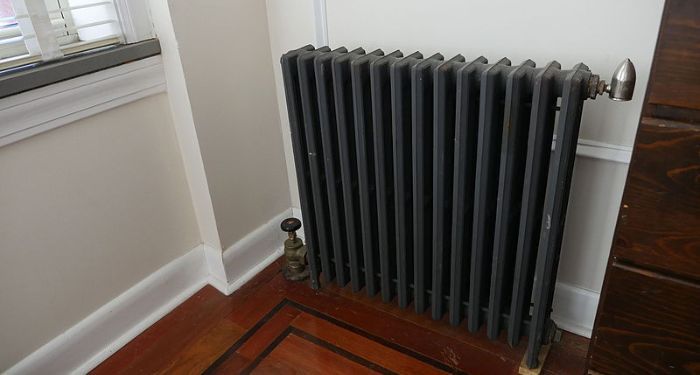
This then allows a column radiator to heat up the room. This type of radiator will generally cost between £185 and £700.
Pros:
- Durable
- Can save on your heating bill
- Aesthetically pleasing
Cons:
- Column radiators are quite expensive
- May take longer to heat up
Heated Towel Radiator Cost
Heated towel radiators or bathroom radiators are generally hung along the bathroom wall so, as their name infers, they can be used to hold towels. They are also often used to dry clothing items.
A small bathroom will be heated well by a heated towel radiator. However, a larger bathroom may need something more. In that case, a secondary heat source may prove necessary.
A heated towel radiator usually costs around £36 to £600, making it one of the most inexpensive radiator types you could buy.
Pros:
- Generally inexpensive
- Can heat towels and clothing items
- A heated towel radiator can warm up a small space quite fast
Cons:
- May not be sufficient on its own to heat a larger bathroom
Type of Radiator Fuel
What are the various types of radiator fuel you can get?
How much do they cost? And what are the pros and cons of each?
Let's tackle these questions now.
Oil Filled Radiator Cost
Oil filled radiators are filled with oil which is heated by an electric heating element - creating a heat source.
The oil doesn’t evaporate and can be used indefinitely without the need to be refilled. A 1.2 kW heater fan or convector filled with oil will usually cost about £0.39 per hour to run.
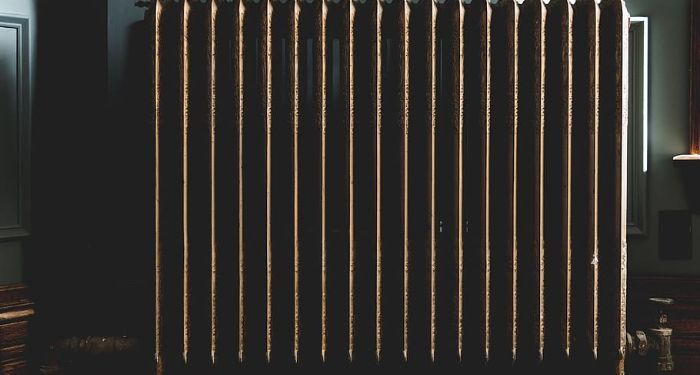
A 1.5 kW radiator will cost about £0.49 per hour to run, while a system that is 2kW will cost approximately £0.66 per hour.
Pros:
- Allergen-free option
- Oil can stay heated for a prolonged time period
- Can heat large rooms well
- High level of energy efficiency
Cons:
- Surface of radiators fuelled by oil can become particularly hot
- More expensive option
- Oil-filled radiators can be large and bulky
- Can take a while to heat up
Gas Radiator Cost
Gas systems consist of a boiler that warms up water, which is then pumped into radiators around a property via the pipework.
But how much does it cost to run a gas radiator?
On average, it costs about £0.11 per kWh to run gas-fuelled radiators.
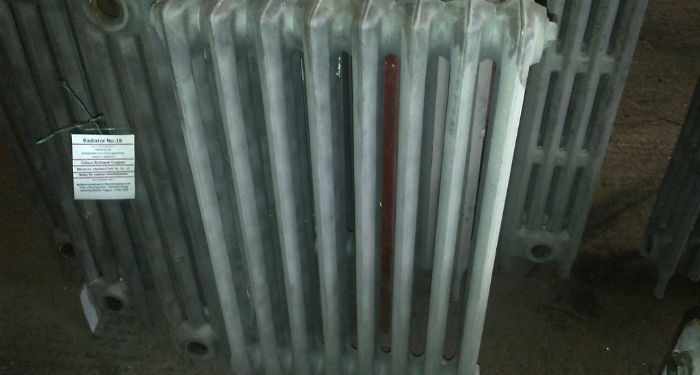
Pros:
- Not as expensive as other types of radiator fuel
Cons:
- Not as energy-efficient
- Not possible to heat different rooms separately with a gas heating system
- Gas fuelled radiators can take a while to heat up
- Radiators powered by gas can be quite noisy
Electric Radiator Cost
Electric radiators depend on an internal heating element and do not need pipework to provide heat.
The cost of running an electric radiator is roughly £0.66 per kWh.
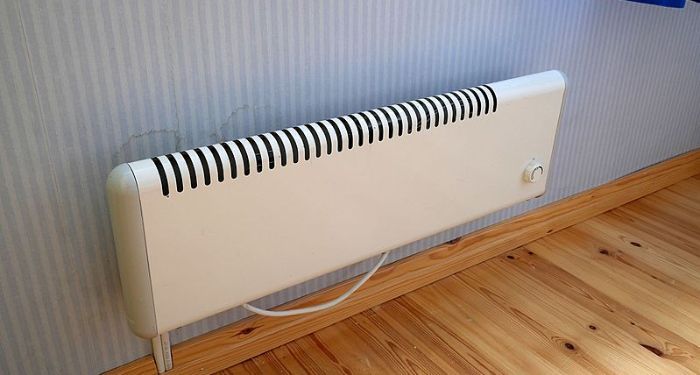
Pros:
- Electric radiators are efficient
- Environmentally friendly
- Can come with multiple thermostats
- Produce minimal noise
- Can reduce electric radiator running costs with the control provided by electric radiators
Cons:
- Can be costly to run
What’s the Best Radiator for Your Room?
Choosing the best radiator depends on the size of your space, heat requirements, and overall aesthetics you are looking to achieve. Here is a breakdown of the best radiator options based on room type:
- Small Rooms – Single-panel radiators or electric radiators are ideal for heating smaller rooms without taking up too much space.
- Large Rooms - Double-panel convector radiators or vertical radiators offer higher a heat output. Allowing them to distribute warmth more effectively in larger areas.
- Bathrooms - Heated towel rails are a popular choice for bathrooms. They provide heat as well as a convenient way to dry towels.
If energy efficiency is at the top of your priority list, the best radiator to choose would be an electric radiator with a smart thermostat. These are the best eco-friendly option as they offer precise temperature control and waste less energy.
Radiator Maintenance Cost
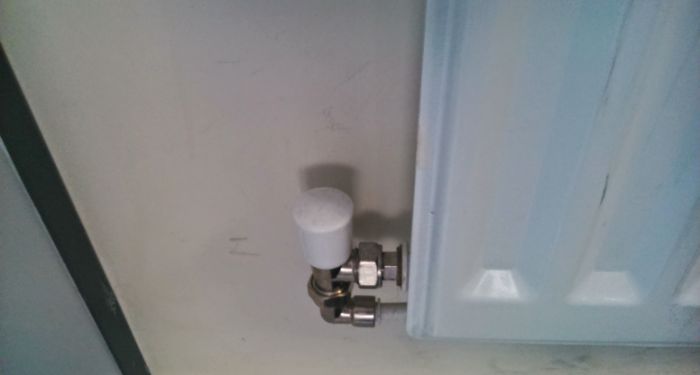
Here's an important question.
What are the ongoing radiator maintenance costs you should expect to pay?
In this section, we cover how much you'll need to budget for maintaining the different types of radiators you might have around your home.
Bleeding Radiator Cost
Bleeding a radiator involves letting air out of it. This is done because unreleased trapped air inside your radiator can prevent heat from properly circulating, which leads to cold spots that reduce the effectiveness of your radiator.
Bleeding radiators costs you somewhere in the range of £75 to £150. For a heated towel radiator, you should also check the boiler pressure.
Power Flush Cost
A power flush involves utilising a chemical solution to clean your radiator. This can remove debris and rust that could be hindering the function of your radiator and causing inefficiencies.
But how much does it cost to power flush central heating systems?
In 2025, the radiator flush cost will be around £350 to £450 for 6 radiators, £425 to £525 for 8 radiators, or £475 to £575 for 10 radiators.
The same product or one that is similar can be used to clean the track. Finally, hoover the track and reattach the rollers to the door(s).
You may need to pay between £12 and £20 per hour for such a cleaning job - plus any supply costs.
Gas Appliance Inspection Cost
It’s good to get your gas appliances tested every year, and this includes if you have a gas-powered radiator.
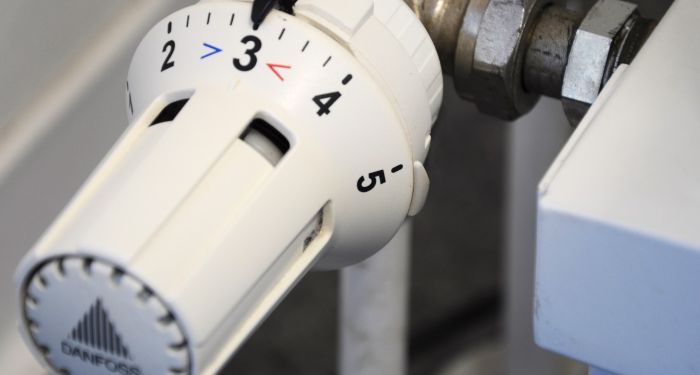
Such inspections may spot leaks or other problems that need repairing before they become a major issue that costs more money to resolve. It can cost anywhere from £35 to £150 to have all of your gas appliances checked.
Cost of Cleaning Oil or Electric Radiators
To clean either an oil or electric radiator, you'll first need to turn off the radiator and allow it to completely cool down. A dry cloth can be used to remove any dust. You should not use any abrasive solvents or abrasive powder products. A vacuum cleaner may be used.
And how much would it cost to have this work done?
If you hired a professional cleaner to perform the work, they would typically charge £12 to £20 per hour.
Radiator Repair Costs
In this section, we cover the cost of radiator repairs, such as having a carbon monoxide leak resolved.
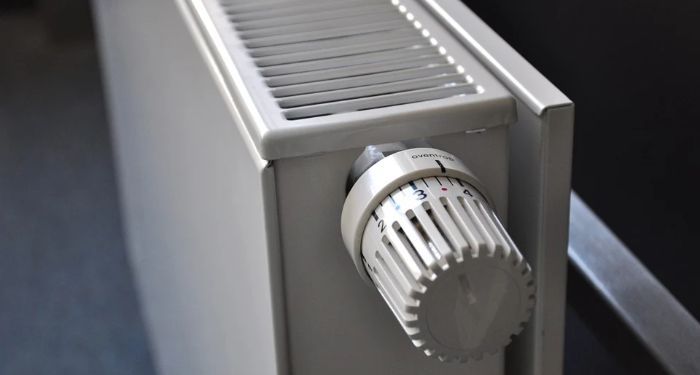
Cost to Replace a Radiator Valve
If a radiator valve has broken (or become worn beyond repair), you may need to have it replaced.
The bottom line?
It will probably cost around £100 to £140 between the labour and supply costs to have a valve replaced.
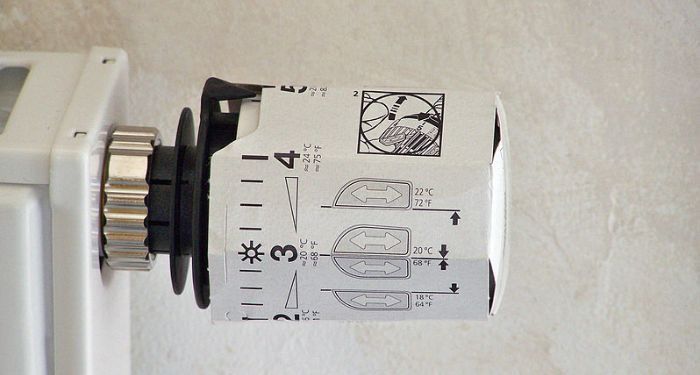
Carbon Monoxide Leak Repair Cost
Gas fuelled radiators are susceptible to possible carbon monoxide leaks. If you have a carbon monoxide leak, everyone in your home should leave immediately.
A carbon monoxide alarm will go off and will alert you that such a leak exists.
You should then contact the fire services. When it is safe for a heating engineer to arrive, they will find the source of the leak and repair it, for example, if it's from a radiator or the central heating system.
It could cost you about £70 to £100 to have a carbon monoxide leak repaired - although the cost may run into a total of several hundred pounds or more depending on the severity and scale of the problem.
Carbon monoxide leaks can be very dangerous and kill around 25 to 50 people in the UK each year.
Radiator Cold at Bottom or Top Repair
A radiator can develop cold spots near the top or bottom due to sludge, particles of limescale, or rust. A radiator should be bled out in order to fix this problem.
The radiator should be turned off, sheets placed beneath it and the valves turned off. Next, the bleed valve should be opened to drain the radiator.
The bleed valve should then be closed prior to removing the radiator in order to hose it down. These steps should then be completed in reverse.
To hire a professional to bleed a radiator it will cost roughly £75 to £150.
Fix Broken Heat Pump
If you find that your heat pump is active but not circulating water and that the issue continues to come and go, you may need a heat pump replacement.
Simply tapping the pump may fix the issue. But if this doesn't work, you should hire a professional to take a look.
One approach they may take is to perform a hot flush of your heat pump to remove any blockages. This can be done using appropriate chemicals.
Alternatively, if they suspect that airlocks are present, these may be removed by very gently adjusting the pump’s bleed screw - opening it by a mere quarter of a rotation.
There is also the possibility, although unlikely, that the heat pump was installed incorrectly. In this case, the position of the pump can be switched around.
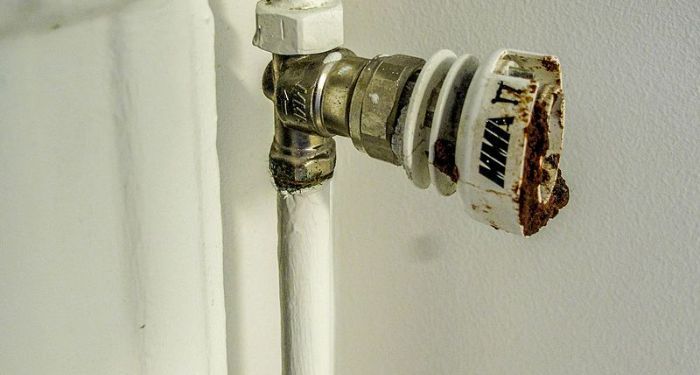
However, before this action is taken, it’s important to ensure that the system is fully drained. Other possible problems that may be fixed are that the pump speed settings are incorrect or that the fuse has blown, failing to power the heat pump.
To get a heat pump replaced will likely cost between £200 and £250. As for any of the other work discussed, a plumber may charge anywhere from £20 to £50 per hour (plus any supply costs, such as chemicals if performing a hot flush).
How Much Does It Cost to Move a Radiator?
You may choose to have your radiator moved to another wall to free up space in a room, make house renovations, or add-in a different sized radiator (which might be more appropriate for the room size).
On average, the labour cost to move a radiator will be around £80 to £120.
How Much Does It Cost to Remove a Radiator?
Now:
Let’s consider the price involved in having a radiator removed.
You may choose to have a radiator removed to free up space in a room so that you can install a new, modern radiator in its place - or because you feel that your house has more than enough radiators as it is!
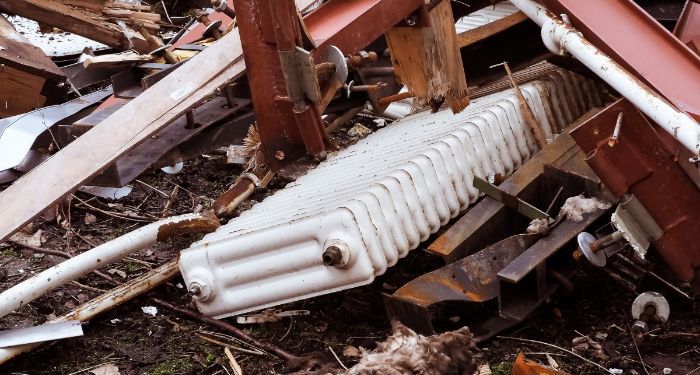
To have a small radiator removed will cost about £70 to £90. The cost to remove a medium radiator will end up around £90 to £110, while a large radiator will cost between £110 and £130 to have removed.
You could dispose of an old radiator with a skip or through alternative waste disposal services such as a ‘Man and Van’ service as offered by companies like Clear A Bee.
FAQs
Q: What size radiator do I need?
A: The radiator size you require will depend on the size of the room you are installing it in. You will also need to consider factors such as how the room is insulated and if there are areas of heat loss such as windows or external walls. Combining these factors will allow you to determine the heat output required. You can use a BTU calculator to figure this out.
Q: How does a radiator work?
A: A standard radiator works by heating water from the boiler and circulating it through its panels. The hot water warms up the metal, which then heats the surrounding air in your room. As the warm air rises, the cooler air moves in, which creates a cycle that spreads the heat. The water then returns to the boiler to be reheated, and the process starts again.
Q: Which radiator should I bleed first?
A: The best option is to bleed the radiator furthest from the boiler first and then work your way towards the boiler. If you live in a multi-story house, start with the downstairs radiators, beginning with the one farthest from the boiler and move closer. then move upstairs following the same layout. The last radiator to bleed should be the one nearest to the boiler. This method will make sure that any trapped air in your system is gradually removed, improving your heating efficiency.
Q: Can you bleed a radiator when the heating is on?
A: No, you should not bleed a radiator when the heating is on. Bleeding a radiator while the heating system is running can be dangerous. The water inside will be hot and under pressure. Trying to bleed a radiator in this way increases the risk of burns or scalding.
Q: What is the most environmentally friendly type of radiator?
A: Arguably, electric radiators are the best option for the environment due to their efficiency, sustainability, and compatibility with renewable energy sources such as solar panels and wind turbines. When combined with a green energy tariff, they become one of the most environmentally friendly heating options available.

